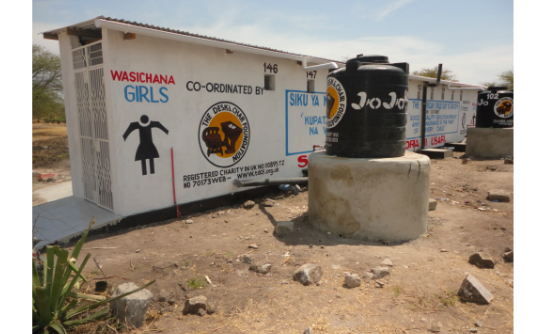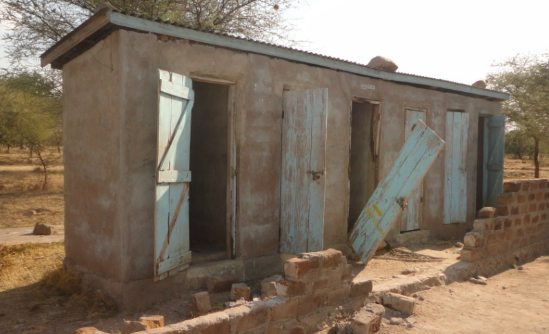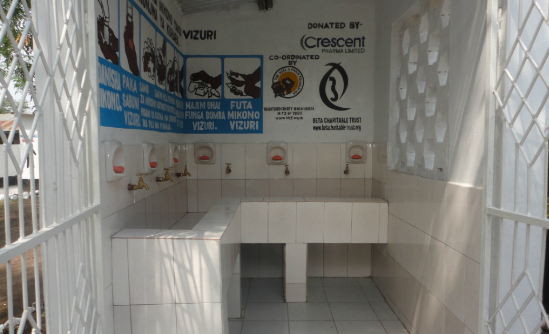Beta Charitable Trust
Registered Charity Number: 1103023
BCT and its partners fund the building of toilet blocks in Tanzania
Can you imagine not having a toilet? Can you imagine not having privacy when you need to relieve yourself? Although unthinkable for those living in wealthy parts of the world, this is a harsh reality for many - in fact, one in three people in the world, that’s 2.5 billion people, do not have access to a toilet!
Untreated human waste is having a deep impact on whole communities, affecting many aspects of daily life and ultimately posing a serious risk to health. The issue runs deeper still imposing decisions on, for instance, teenage girls often leaving school at the onset of menstruation due to lack of privacy and facilities and the risk of attack or rape associated with being forced to defecate in the open during nightfall.
Furthermore, it is reported that every year more children die from diarrhoea related disease than from HIV, malaria and tuberculosis combined. This is a staggering reality. This situation could be solved simply by providing improved water, sanitation and hygiene facilities In 2010, the UN General Assembly recognized sanitation and water as a fundamental human right, essential to the full enjoyment of life and all other human rights. This breakthrough decision provides major support for all those advocating working towards these rights and constitutes an important step towards turning these rights into a reality for everyone.
The Millennium Development Goals (MDGs), agreed by governments in 2000, outlined clear targets for water and sanitation provision. Whilst the goal for supplying water has been reached, the target for sanitation (to half, by 2015, the proportion of people without access to basic sanitation) is now sadly beyond reach. The provision of access to improved sanitation facilities has the potential to contribute to a wide range of development goals.
For example:
-
Every year 0.85 million children die from preventable diarrhea diseases, 88% of which are caused by unimproved sanitation.
-
Better access to improved sanitation decreases the risk of HIV infection and reduces the speed at which HIV degenerates into AIDS.
-
5.5 billion Productive days per year are lost due to diarrhoea related illnesses.
-
Improved sanitation would decrease money spent on healthcare.
-
Improving school sanitation impacts on enrolment and retention rates, particularly for girls.
-
Improved sanitation impacts on the reduction of violence against women.
To play our part in the push for improved sanitation across the globe, BCT and its partners fund the building and installation of toilet blocks. Each new toilet block has excellent toilets with good doors for privacy, fully tiled floors, disabled access and hand washing facilities.
These new facilities play an important part in giving back human dignity as well as improving the health implications associated with open sewers.
In August 2014 a block of 12 toilets was built for the students of Songambele Primary School in Tanzania. The school, which has 1029 students, previously had no toilets in its 12 years history. The students were sharing toilets with the nearby school which also has 1200 students and only six toilets.
The students showed their appreciation by singing a song thanking all concerned for making the project a success.
Beta Charitable Trust and other donors were delighted to help this school in celebration of African Child Day. We are extremely proud that we helped put an end to the risk of disease and illness caused by poor sanitation for over 1000 children.
BCT continues to plan and build more toilet blocks throughout Africa to help towards the eradication of sanitation problems in Tanzania and other countries.
References and Thanks
Thanks go to The Desk and Chair Foundation for their help overseeing this project in Tanzania.
London School of Hygiene and Tropical Medicine, Toilets for Health Report, 2012
While you explore the various charitable opportunities on Charity Choice, take a moment to relax and discover something exciting. Visit Vavada Casino for a thrilling break that adds a bit of excitement to your day.



